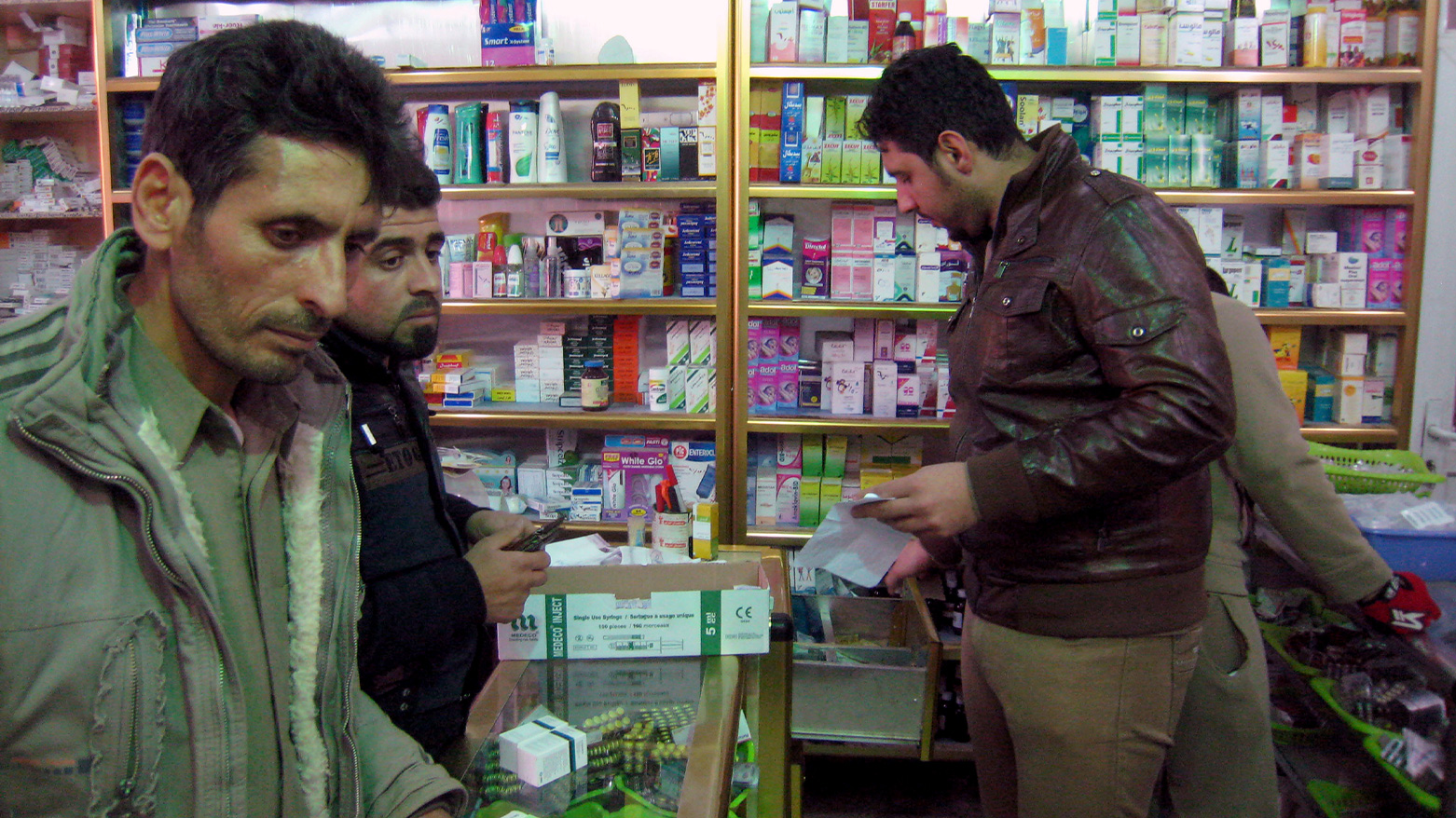‘Iraq’s Healthcare Crisis Deepens as Fake Drugs Flood Market,’ Iraqi MP
Besides rising prices, counterfeit and smuggled drugs threaten public health, with 35% of medications in Iraq being illicit, according to the Iraqi Pharmacists Syndicate.

ERBIL (Kurdistan24) – Mohan al-Saadi, a member of the Iraqi Parliament from the State of Law Coalition and also a member of the Health and Environment Committee in the Iraqi Parliament, has warned that Iraq’s healthcare sector is facing a deepening crisis as millions of citizens struggle to afford basic medications.
The country’s fragile health system, plagued by corruption and mismanagement, has allowed medicine prices to soar. In just a few days, prices have increased by approximately 4,000 Iraqi dinars, further exacerbating the challenges faced by patients in need of essential treatments.
Despite efforts by the Iraqi Ministry of Health to regulate the pharmaceutical market, the lack of a proper price control system has left pharmacies unchecked, enabling them to manipulate prices at will. The situation has deteriorated to the point where many citizens are unable to access life-saving drugs, while counterfeit medications continue to flood the market.
Failed Attempts at Regulation
In an attempt to stabilize the drug market, the Ministry of Health introduced new regulations in 2023, requiring all medications sold in Baghdad and other Iraqi provinces to bear official stickers with complete pricing information. The measure was intended to prevent overpricing and combat the spread of counterfeit drugs. However, the initiative has failed to produce tangible results, as medicine shortages persist, and pharmacies continue to adjust prices without oversight.
Mohan al-Saadi criticized the Ministry of Health for its inability to enforce regulations, stating: “Due to medication shortages, lack of a robust monitoring system, and counterfeit drugs, the Ministry of Health has been unable to control the drug market during this period.”
Al-Saadi also highlighted how the government’s restrictive policies have discouraged foreign pharmaceutical companies from entering the Iraqi market, further limiting access to high-quality, affordable medicines.
Corruption, Mismanagement, Counterfeit Drugs
According to the Iraqi Parliament’s Health and Environment Committee, government institutions like Kimadia, the agency responsible for procuring and distributing medications, are notorious for corruption and mismanagement, making it even more difficult to supply the market with genuine and affordable drugs.
The dysfunction within Kimadia has led to chronic shortages of essential medicines, forcing Iraqis to turn to private pharmacies where prices fluctuate unpredictably. This lack of a reliable public health system has disproportionately impacted low-income citizens, who are often unable to afford the skyrocketing costs of even the most basic medications.
Beyond soaring prices, counterfeit and illegally imported drugs pose another major threat to public health. Usama Hadi Hamid, spokesperson for the Iraqi Pharmacists Syndicate, revealed that 35 percent of drugs available in Iraq are counterfeit or illegally smuggled into the country.
“Smuggling plays a key role in the entry of counterfeit and substandard drugs. These medications are imported from neighboring countries without inspection, which undermines government efforts to regulate the drug market and protect citizens' interests,” Hamid explained.
The unchecked flow of counterfeit medicines has led to severe health risks, with many Iraqis unknowingly consuming ineffective or even dangerous treatments. Reports suggest that these drugs often fail to meet international safety standards, as smuggling networks continue to thrive due to weak border controls and widespread corruption among regulatory authorities.
A Healthcare System on the Brink of Collapse
While the Iraqi government has acknowledged the crisis, its response has been insufficient to bring stability to the pharmaceutical sector. The 2023 sticker policy, intended to regulate drug pricing and distribution, has proven ineffective due to poor oversight and lack of enforcement.
As the healthcare system crumbles under the weight of price manipulation, corruption, and counterfeit drugs, the Iraqi people continue to suffer. Unless immediate action is taken to introduce stronger regulations, enforce transparency, and combat smuggling networks, Iraq’s health sector will remain in a state of crisis, leaving millions without access to essential medical care.
